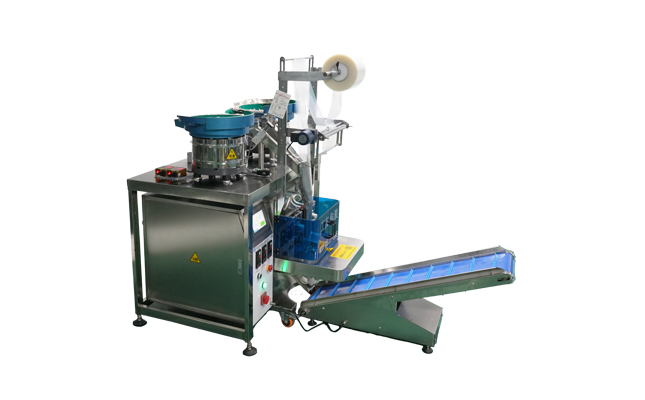
Date | 2023-05-08 00:49:56
Introduction:
Hardware packing machines are a critical component of modern manufacturing operations. These machines are designed to automate the packaging process and improve efficiency while ensuring consistency and accuracy. This article delves into the technology behind hardware packing machines and how they work.
Functionality:
Hardware packing machines are designed to take hardware components, such as screws, nuts, bolts, and washers, and pack them into bags or containers. They can pack various sizes and shapes of hardware components at a high rate of speed. The machine sorts the components by size, shape, and weight, and then packs them into the designated bag or container.
Types of Hardware Packing Machines:
There are various types of hardware packing machines available, each with unique features and capabilities. The most common types of hardware packing machines include:
Vertical Packing Machines: These machines are designed to pack hardware components into bags in a vertical orientation. They are ideal for packing small and medium-sized hardware components, such as screws and bolts.
Rotary Packing Machines: These machines use a rotating drum to sort and pack hardware components into bags or containers. They are ideal for packing larger hardware components, such as nuts and washers.
Counting Packing Machines: These machines are designed to count and pack hardware components into bags or containers. They are ideal for packing a specific number of components, such as ten screws or five bolts.
Working Principle:
Hardware packing machines use a combination of mechanical and electrical components to sort and pack hardware components. The machine is equipped with sensors that detect the size, shape, and weight of each component. The machine then sorts the components and feeds them into the packaging system. The packaging system consists of a bagging or container system that packs the components into the designated bag or container.
Conclusion:
Hardware packing machines play a vital role in modern manufacturing operations by automating the packaging process and improving efficiency. They are designed to pack various sizes and shapes of hardware components at a high rate of speed while ensuring consistency and accuracy. With the advances in technology, hardware packing machines continue to evolve, providing manufacturers with new capabilities and opportunities to improve their operations.Advancements in Hardware Packing Machine Technology:
Over the years, hardware packing machines have undergone significant advancements in technology. Some of the notable advancements include:
Automation: The latest hardware packing machines are highly automated and require minimal human intervention. They are equipped with advanced sensors and software that can detect and sort components based on their size, shape, and weight, ensuring consistency and accuracy.
Integration: Hardware packing machines can now be integrated with other machines and systems, such as conveyor belts and robotic arms, to streamline the packaging process further.
Customization: Manufacturers can now customize hardware packing machines to meet their specific needs. For example, they can customize the machine to pack components of a specific size or shape.
Efficiency: The latest hardware packing machines are highly efficient and can pack components at a much higher rate of speed than older machines. This translates into significant cost savings for manufacturers.
Benefits of Hardware Packing Machines:
Hardware packing machines offer numerous benefits to manufacturers, including:
Increased Efficiency: Hardware packing machines can pack components at a much higher rate of speed than manual labor. This translates into increased productivity and efficiency.
Consistency and Accuracy: Hardware packing machines can sort and pack components with a high level of consistency and accuracy, reducing the likelihood of errors or defects.
Cost Savings: By automating the packaging process, manufacturers can reduce labor costs and improve their bottom line.
Improved Safety: Hardware packing machines eliminate the need for manual labor, which can be hazardous and lead to workplace injuries.
Conclusion:
In conclusion, hardware packing machines play a crucial role in modern manufacturing operations. They automate the packaging process, improve efficiency, and ensure consistency and accuracy. With the advances in technology, hardware packing machines continue to evolve, providing manufacturers with new capabilities and opportunities to improve their operations. By investing in hardware packing machines, manufacturers can improve their bottom line, increase productivity, and stay competitive in today's global marketplace.
